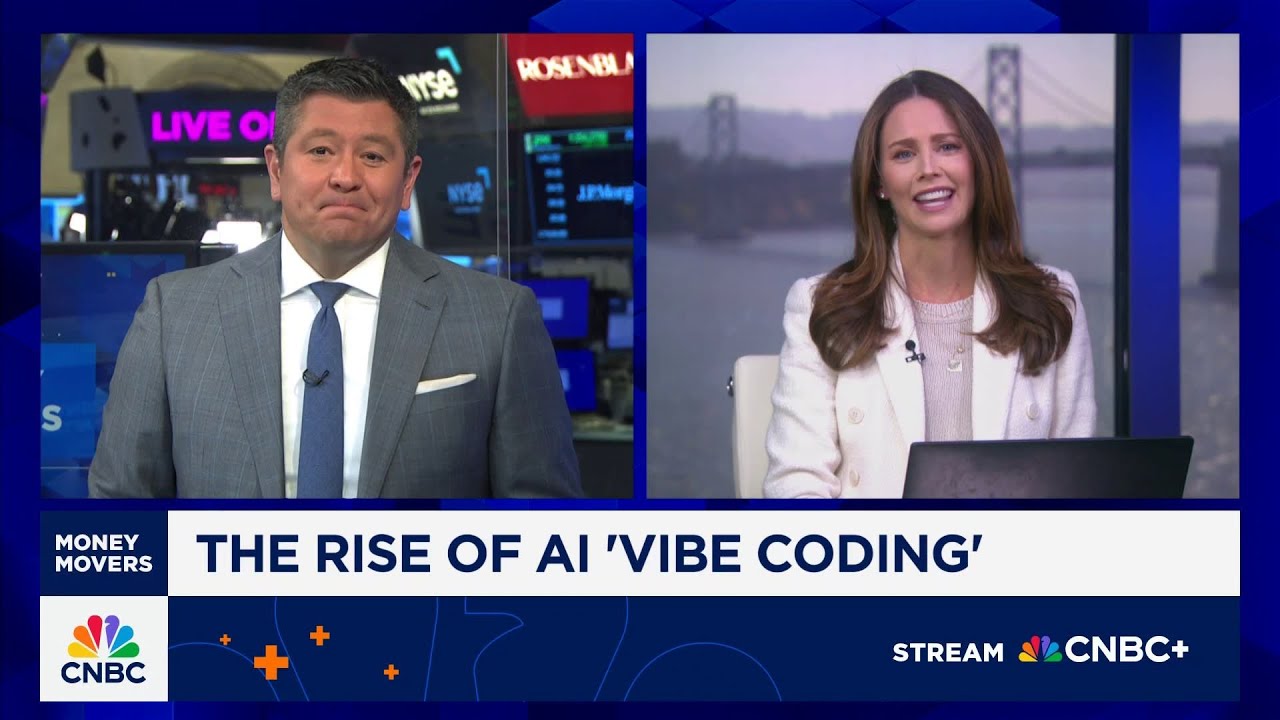The video explains how “vibe coding,” driven by AI tools like Cursor, is transforming software development by enabling faster, more casual coding with simple prompts, allowing startups to operate with smaller teams and accelerate growth. While this trend boosts efficiency and speeds up product deployment, it raises concerns about job security and whether these productivity gains will translate into increased profitability for tech companies.
The video discusses the rise of “vibe coding,” a new trend in Silicon Valley where AI-powered tools are transforming software development. The startup behind the AI programming tool Cursor has achieved a valuation of $9 billion, highlighting the rapid growth of AI-driven coding solutions. Major tech companies like Microsoft and Meta are also investing heavily in this trend, indicating its significance across the industry. Vibe coding allows developers to create software more casually and quickly by inputting simple text prompts rather than writing complex code, thereby lowering the barriers to software creation.
This approach to coding is making startups more efficient and profitable in their early stages. By leveraging AI to handle routine or easier coding tasks, startups can operate with smaller teams—sometimes as few as five engineers—compared to traditional requirements of much larger teams. This leaner approach enables faster growth and development, giving these early-stage companies a competitive edge. The trend is also gaining traction among established tech giants, who report that AI is now responsible for writing a significant portion of their code—up to 50% at Meta and around 30% at Microsoft and Amazon.
Despite the productivity gains, there is little immediate evidence that these efficiencies are translating into increased profitability for these companies. Analysts suggest that AI’s primary benefit so far is speeding up product development and deployment rather than boosting profit margins. The focus remains on using AI to handle simpler coding tasks, leaving more complex, high-priority work to human engineers. This shift could lead to a reduced need for large engineering teams in the future, raising concerns among the tech labor force about job security.
The trend is also impacting early-stage startups, which are now able to build and grow with significantly smaller teams. At Y Combinator demo days, founders reported that they are creating companies with just five people, compared to the much larger teams needed two years ago. While these startups are not yet profitable, they are able to develop products faster and compete more effectively. The ability to quickly prototype and iterate is opening new opportunities for entrepreneurs and lowering the technical barriers to entry in software development.
Overall, vibe coding and AI-assisted software development are reshaping the tech industry. The technology is evolving rapidly, with new capabilities emerging daily. While it promises increased efficiency and faster product cycles, it also raises questions about the future of employment in tech and the long-term impact on profitability. As AI continues to integrate into coding workflows, the industry is likely to see continued innovation, with both opportunities and challenges ahead.
